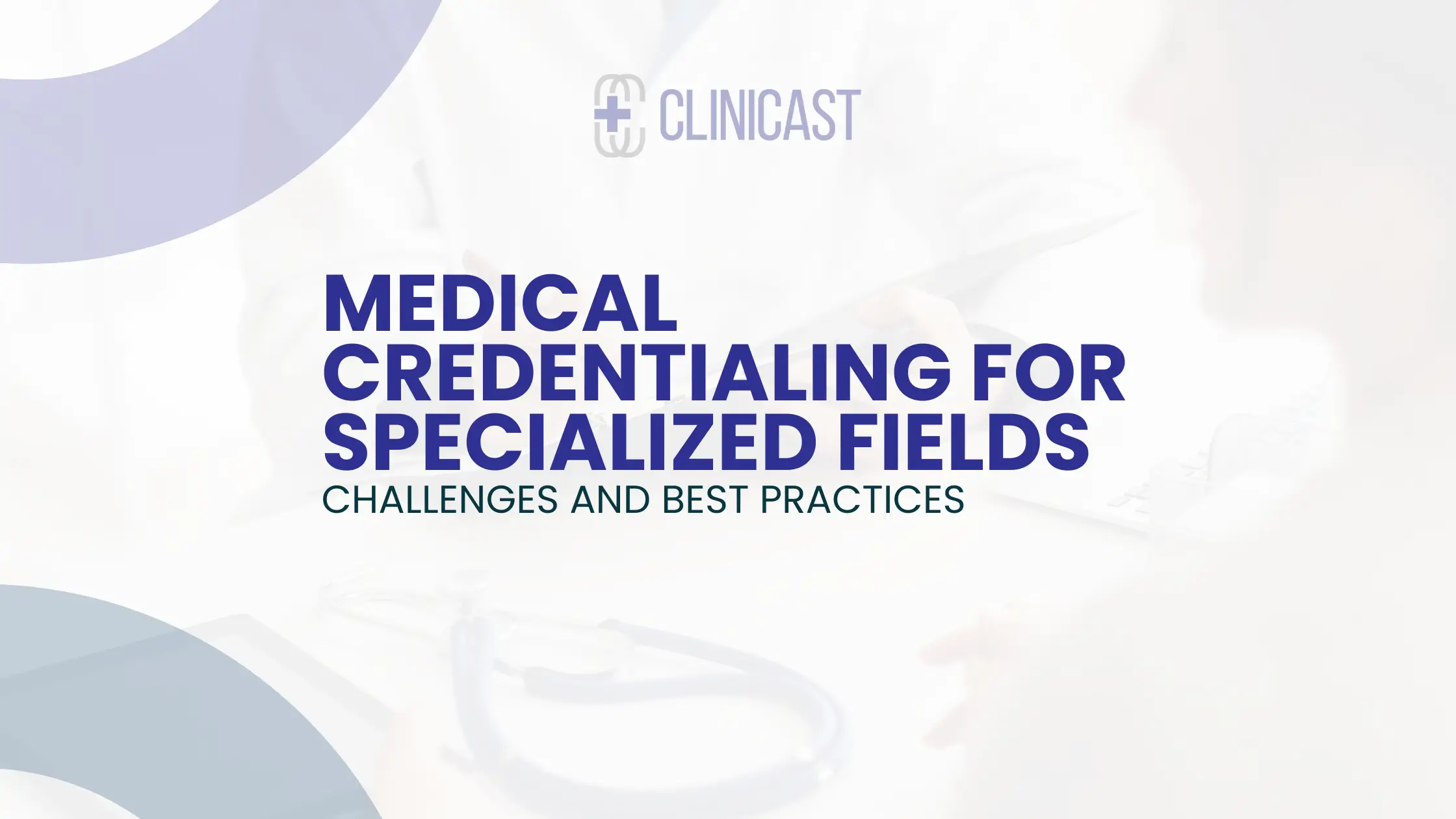The Importance of Medical Credentialing in Specialized Fields
Medical credentialing is a systematic process of assessing and validating a medical professional’s qualifications, experience, and expertise. In specialized fields, where the margin for error is minimal and the stakes are high, credentialing becomes even more crucial. Whether it’s a radiologist interpreting a complex scan, a telepsychiatrist offering remote consultations, or a surgeon performing a high-risk procedure, the assurance that these professionals are credentialed becomes the foundation of patient trust.
Challenges in Medical Credentialing for Specialized Fields

Challenges in Medical Credentialing for Specialized Fields
1. Varied Requirements: Different specialties have varied training and certification requirements. A telepsychiatrist, for instance, not only needs to be credentialed in psychiatry but also in telemedicine regulations and best practices.
2. Rapid Technological Advancements: Specialties like radiology are continually evolving with technological advancements. Keeping up with these changes and ensuring that professionals are trained and qualified in the latest technologies can be a significant challenge.
3. Sub-specialization: Many fields, like surgery, have multiple sub-specialties. Credentialing for a cardiac surgeon will differ considerably from that of a neurosurgeon, adding layers of complexity to the process.
4. Remote Practices: With the rise of telemedicine, credentialing needs to take into account state-wise regulations, especially for specialties like telepsychiatry, where a practitioner might be catering to patients across multiple states.
Best Practices in Medical Credentialing for Specialized Fields
1. Stay Updated: Regularly review and update the criteria for credentialing, especially in rapidly evolving specialties. Ensure that the benchmarks set are in alignment with the latest in medical advancements and practices.
2. Streamlined Documentation: Establish a robust system for collecting, verifying, and storing professional documents. This is especially vital in specialized fields where additional certifications or training might be necessary.
3. Engage with Specialty Boards: Collaborate with specialty and sub-specialty boards and organizations. These institutions can provide valuable insights and guidelines that can aid in refining the credentialing process.
4. Adopt Technology: Utilize advanced credentialing software and platforms. These tools can automate many aspects of the process, ensuring efficiency and reducing the scope for errors.
5. Regular Training for Credentialing Teams: Given the intricacies of specialized fields, it’s essential that the teams responsible for credentialing are well-trained and updated about the nuances of each specialty.
Frequently Asked Questions (FAQs)
Q1: What is the difference between general medical credentialing and credentialing for specialized fields?
Answer: General medical credentialing focuses on the broader qualifications and experiences of a medical professional. In contrast, credentialing for specialized fields delves deeper into the specific qualifications, training, and expertise required for that particular specialty.
Q2: How often should a specialized professional undergo recredentialing?
Answer: While the exact frequency can vary depending on the specialty and governing bodies, it’s typically recommended every 2-3 years.
Q3: Are there specific technologies recommended for credentialing in specialties like radiology or telepsychiatry?
Answer: Yes, there are specialized credentialing software and platforms tailored for specific fields. They take into account the unique requirements and challenges of each specialty.
Q4: How do state-wise regulations impact telemedicine specialties in the credentialing process?
Answer: Telemedicine often involves catering to patients across different states. Each state may have its regulations and requirements. Thus, professionals in telemedicine specialties may need to be credentialed according to multiple state guidelines.
Q5: How can small practices ensure they are effectively credentialing their specialized professionals?
Answer: Small practices can collaborate with credentialing experts, stay updated with the latest guidelines from specialty boards, and utilize advanced credentialing platforms tailored for specialized fields.


